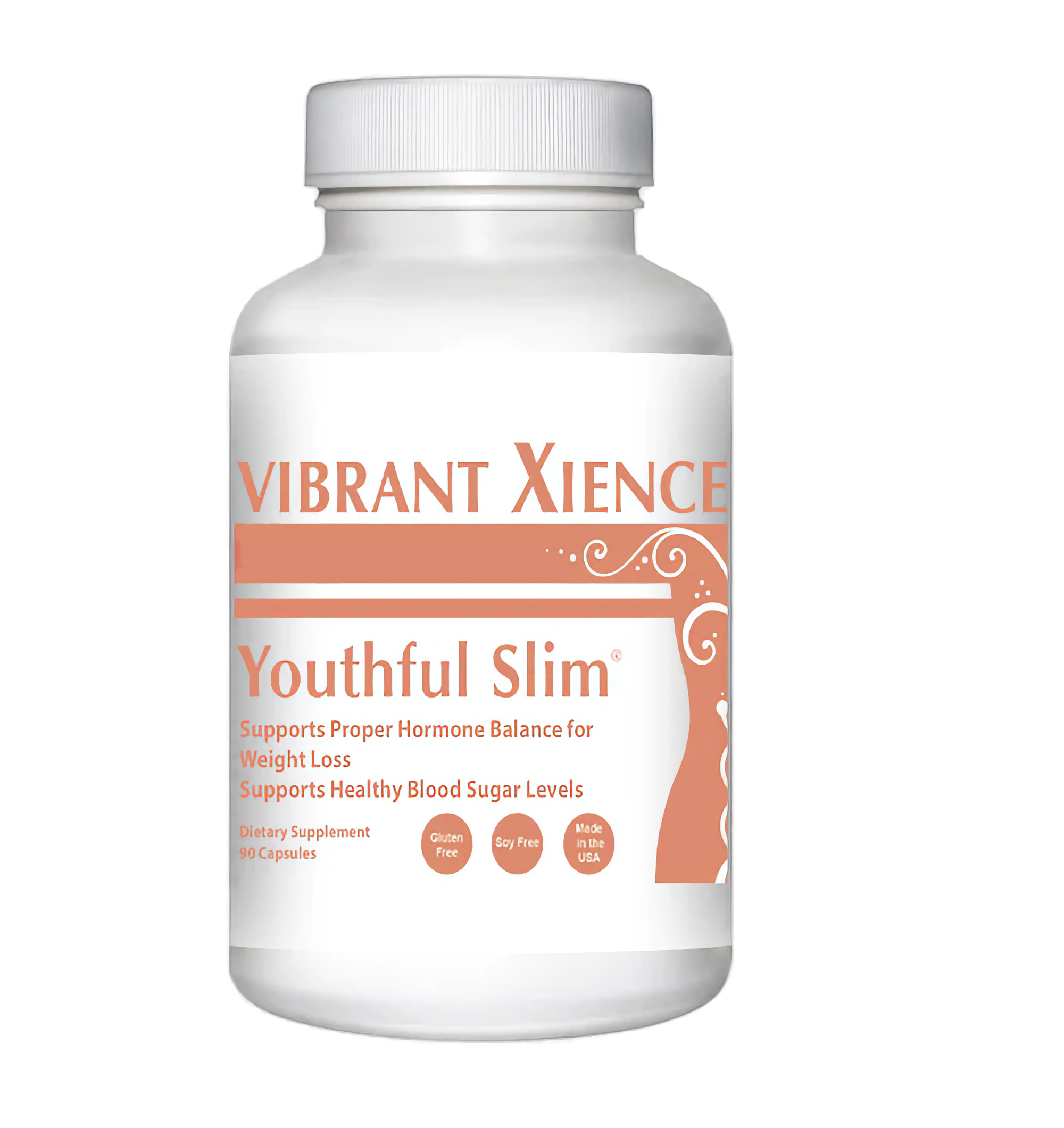Are you looking to improve your hormonal health and lose weight? Exercise is a powerful tool for balancing hormones and achieving weight loss goals. By integrating various types of physical activity, you can improve insulin sensitivity, regulate estrogen levels, and enhance overall metabolic function.
Cardio exercises such as running, swimming, and cycling are excellent for boosting your metabolism and burning calories. Strength training, like weight lifting and bodyweight exercises, helps build muscle mass, which in turn increases your resting metabolic rate. This combination is particularly beneficial for those dealing with hormonal imbalances.

Yoga and Pilates also play a crucial role in reducing stress, which can significantly impact your hormonal health. These forms of exercise help maintain cortisol levels and promote a sense of well-being. Adopting a diverse fitness routine not only supports weight loss but also ensures balanced hormone levels, leading to better health and vitality.
Understanding Hormonal Impacts on Weight
Hormones play a crucial role in regulating weight by affecting metabolism, appetite, and fat storage. Imbalances in hormones such as insulin, cortisol, and estrogen can significantly impact weight control, particularly in women.
Hormonal Balance and Weight Regulation
Maintaining hormonal balance is essential for effective weight regulation. Hormones such as leptin and ghrelin regulate appetite and satiety. Leptin, produced by fat cells, signals fullness, while ghrelin, produced in the stomach, stimulates hunger. Disruptions in these hormones can lead to overeating and weight gain.
Cortisol, the stress hormone, can also affect weight. Elevated cortisol levels increase appetite and encourage fat storage, especially around the abdomen. Regular exercise, adequate sleep, and stress management are key to maintaining hormonal balance and supporting weight loss.

Effects of Hormonal Imbalances in Women
Women often experience hormonal imbalances during different life stages such as menopause and the menstrual cycle. Conditions like polycystic ovary syndrome (PCOS) can also affect weight. Estrogen and progesterone fluctuations during menopause can lead to weight gain, especially around the midsection.
Insulin resistance is another common issue in women with hormonal imbalances. This condition occurs when cells in the body become less responsive to insulin, leading to higher blood sugar levels and increased fat storage. Addressing these imbalances through lifestyle changes and medical intervention can help with weight management.
Insulin Sensitivity and Weight Control
Improving insulin sensitivity is crucial for effective weight control. Insulin, produced by the pancreas, helps regulate blood sugar levels by allowing glucose to enter cells for energy. When cells become resistant to insulin, blood sugar levels rise, increasing the risk of type 2 diabetes and weight gain.

Youthful SLim
Tired of the endless fluctuations in body composition? Our all-natural formula is designed to support your journey towards achieving a healthy body composition by helping you feel satisfied, controlling cravings, and maintaining balanced energy levels.
Engaging in regular physical activity, such as aerobic and strength training exercises, can enhance insulin sensitivity. A diet rich in fiber and low in refined sugars can also help maintain stable blood sugar levels. These strategies support weight loss and improve overall metabolic health.
Strategic Exercise for Hormonal Health

To effectively manage weight and support hormonal health, it's crucial to integrate various types of exercise into your routine. A combination of cardio, strength training, and stress reduction techniques like yoga can enhance overall well-being, promote muscle mass, and regulate cortisol levels.
Integrating Cardio and Strength Training
Balancing cardio and strength training is key for optimal weight management. Cardio exercises such as running, cycling, or swimming increase energy expenditure and improve cardiovascular health.
Strength training, on the other hand, builds muscle mass, which enhances metabolism even at rest. Exercises like squats, deadlifts, and bench presses are excellent for building strength. Combining these workouts helps in managing obesity by increasing lean muscle and reducing fat stores, which is especially beneficial for women with hormonal imbalances.
Importance of Regular Physical Activity
Regular physical activity is crucial for maintaining hormonal balance and overall health. Engaging in exercise for at least 150 minutes a week can regulate stress hormones and improve insulin sensitivity.
Daily activities, whether structured workouts or simple activities like walking or taking stairs, contribute to energy expenditure. Consistency in physical activity supports weight control, reducing the likelihood of obesity and ensuring that hormonal functions remain optimal.
Yoga and Stress Reduction Techniques

Yoga and other stress reduction techniques play a significant role in managing hormone levels, particularly cortisol. Practices like meditation, deep breathing, and stretching not only alleviate stress but also promote relaxation and mental clarity.
Yoga poses that focus on gentle stretching and strength, such as child’s pose and warrior poses, can be particularly effective. By integrating these techniques into my exercise routine, I manage to keep my stress levels in check, which supports better hormonal health and weight management.
Diet, Nutrition, and Hormone Harmony
The foods we eat play a crucial role in how our bodies function. By choosing the right nutrients and avoiding certain foods, we can support our hormonal health and overall well-being.
Macro and Micro Nutrient Balance
Maintaining a balance of macronutrients—proteins, carbohydrates, and fats—is essential. Proteins are vital for hormone production; lean meats, fish, legumes, and nuts are excellent sources. Healthy fats, such as those found in avocados, olive oil, and nuts, help regulate hormone levels, particularly those related to mood and hunger.

Fiber is another key nutrient. It aids in digestion and helps maintain stable blood sugar levels, thereby reducing inflammation. Vegetables, fruits, and whole grains are rich in fiber. Including a variety of these foods ensures you get a broad spectrum of micronutrients—vitamins and minerals—that support overall hormone balance.
Avoiding Foods That Disrupt Hormonal Balance
Certain foods can disrupt hormonal balance and should be limited or avoided. Processed foods and those high in sugar can spike insulin levels, leading to imbalance. Foods rich in saturated fats can affect estrogen levels and are best eaten in moderation.
High-carb meals, especially refined carbs, can cause rapid fluctuations in blood sugar and insulin, impacting hormonal health. It's better to opt for complex carbs like quinoa, sweet potatoes, and oats. Reducing intake of foods and drinks with added sugars, such as soft drinks and sweets, can help keep hormones in check.
Supplements That Support Hormonal Health
While a balanced diet is crucial, certain supplements can help support hormonal health. Omega-3 fatty acids from fish oil can reduce inflammation and support mood regulation. Magnesium is another important supplement that aids in hormone production and helps alleviate symptoms of PMS.

Vitamin D plays a role in hormone regulation and can be beneficial, especially for women experiencing hormonal imbalances. I find that probiotics help with gut health and digestion, which in turn supports overall hormone balance. Always consider discussing with a healthcare provider before starting any new supplement regimen to ensure it’s appropriate for individual health needs.
Lifestyle Adjustments for Sustained Results
Adopting lifestyle changes can enhance the benefits of exercise by significantly improving hormonal balance and managing weight. Quality sleep and stress management are crucial for maintaining hormonal health during life stages like pregnancy, puberty, and menopause.
Impacts of Sleep and Stress on Hormonal Balance
Quality sleep is essential for regulating hormones, particularly those responsible for stress and metabolism. When I prioritize sleep, I notice improved mood and reduced risk for conditions like heart disease and diabetes. Poor sleep increases cortisol levels, which can lead to weight gain and hormonal imbalances.
Chronic stress affects sexual hormones, including estrogen and testosterone. Managing stress through activities like meditation, yoga, and deep breathing helps balance these hormones, reducing the risk of high blood pressure and other health issues. Small adjustments to my daily routine, such as scheduled relaxation times, can have profound effects.
Managing Life Changes and Hormone Fluctuations
Life changes, including puberty, pregnancy, and menopause, bring significant hormonal fluctuations. During these times, it’s vital to adapt my exercise and diet to support hormonal health. For example, during menopause, strength training can be particularly effective in maintaining muscle mass and reducing symptoms like mood changes.
Diet adjustments, such as increasing fruit and vegetable intake, play a pivotal role. Consuming at least 2 servings of fruit and 3 servings of vegetables daily helps balance hormones and support overall health. These foods provide essential nutrients that aid in managing blood sugar levels and reducing the risks of diseases like cancer.
I hope you found this article valuable and enriching. Your feedback and special requests are always welcome, so don't hesitate to reach out if you'd like to connect or share your thoughts. Until we meet again, stay vibrant, strong, and radiant! 💕 💪🏼 🪞✨






